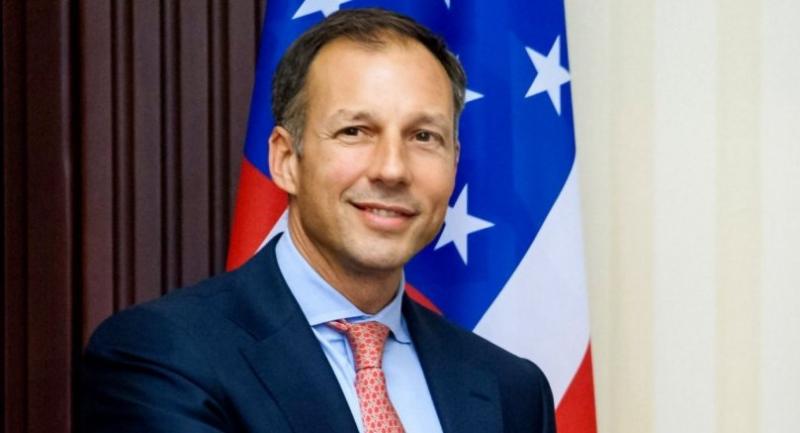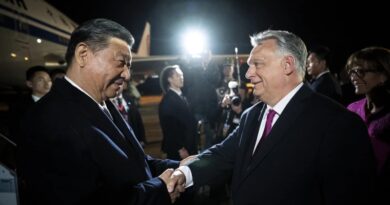Alternatives & Analyses: PM Borisov avoids meeting the top US energy diplomat – the message and the consequences
The news of the failed meeting between the highest-ranking American energy diplomat Francis Fannon and the Bulgarian Prime Minister could mark a critical milestone in US-Bulgarian relations. Almost every time a top US energy envoy has visited the country, Borissov deemed it a must to receive them. His overwhelming interest and on-hand management of Bulgaria’s energy projects substantiated the need to keep communication lines with Washington open. Suffice it to Google Borissov’s rendezvous with Fannon’s predecessors – Richard Morningstar or Amos Hochstein over the last ten years.
Francis Fannon’s statement to the media, made after he met the energy minister, meant that he would not meet Borissov. Diplomatic courtesy has it that press avails follow meetings with the highest-ranking host to avoid misperceptions of disrespect and underline the direct exchange value.
Why did Borissov run away from the meeting with Fannon?
For the same reason, he panicked and ordered Bulgargaz’s bosses to recall their proposal for a 20% gas price hike to the regulator in early September – instinctive fear that negative news after a possible meeting with Fannon could debunk the myth of his “brilliant” relations with America, refuting the parable of his boundless skills to sell Russian projects to the West, catalyzing the protests.
PM Borissov attempted to play almost his entire arsenal of tricks. He attempted media control – the pro-government media virtually ignored this essential U.S. visit. Media censorship in Bulgaria is nearly universal and applies to internal opposition and the top energy representative of Bulgaria’s most important ally.
The Bulgarian PM struck a deal with the first 8 F-16s, which secured him a White House visit. He tried the same trick by offering to buy eight new planes and 3D radars, ordered gas turbines for Turk Stream compressor stations from U.S. company Solar Turbines, worth more than USD 150 million, just as he had marketed the Belene NPP as enjoying US support for involving Westinghouse.
The issue at stake for the Bulgarian PM has always been the U.S.’s muted reaction to or ignoring his corruption and autocratic governance model.
Both attempts failed as Borissov’s confidants never realized that when it comes to geostrategic priorities at a critical time and extreme confrontation with Russia, tradeoffs with the U.S. to appease Russia is a mission impossible, notably with shaky allies with backdoor links to Russia.
Until now, shared only in confidential exchanges, Washington’s verdict was unequivocal – despite the different name, TurkStream is being built across Bulgaria and is a channel of corruption and dependence on Russia.
What Fannon told Bulgarian reporters effectively wipes hopes that Borissov would escape sanctions and that the Kremlin and Gazprom would succeed in coming to an agreement with the White House on using Saudis as middlemen.
Such an observation is a no – brainer or at least not really an extreme foresight – the United States has consistently raised its discontent and opposition to TurkStream’s twin – Nord Stream, risking a crisis in relations with its most important ally in Europe – Germany. What are the chances then for peripheral Bulgaria, which, under Borissov, has increasingly become is a political risk with inconsistent value as an ally.
These articles analyses and comments are made possible thanks to your empathy and contributions, which are the only guarantors of independence and objectivity in our work. The Alternatives and Analysis team.
As an experienced professional, the head of U.S. energy diplomacy did not emphasize the “stick” over the “carrot,” insisting that the imposition of sanctions is neither America’s first nor preferred choice, only the end in the process of reconciling differences. It seems natural for allies to support NATO and EU’s joint operations against the Kremlin as a primary opponent, denying a regional monopoly of Russian gas via the strategically important Turkstream.
Bulgaria’s ruling class has overlooked an important aspect of the sanctions scenario’s key line – the US Government does not even need to enforce them explicitly and target Bulgarian companies. Suffices to make sure that works and funding for TurkStream are not insured. The same applies to the U.S. gas turbines that could be delayed or altogether canceled, or the terms of credit become prohibitive due to excessively high political risk, which will be an accurate assessment.
A problem with the open funding of project works will expose Gazprom’s behind-the-scenes financing and the pivotal role of Russian companies and Russian suppliers involved in the project. From there on, the whole corruption pyramid of politicians and companies engaged in profit-sharing, passing on to Bulgartransgaz, a massive debt on the project, will emerge against a background of uncertain revenues.
In conclusion, the meeting-that-didn’t-take-place dealt a lethal blow to Borissov’s image as a proponent of Euro-Altantic values. Europe has already changed its tone towards his government and the model of governance. The United States has also made it clear that it no longer accepts Borissov-Peevski and Geshev’s version as convincing evidence of a pro-democracy base, the rule of law, and NATO solidarity.
Once again, albeit in a discreet and indirect mode, Washington made it clear that it understands and shares the sentiment behind the anti-corruption motives of the protests – the “glue” that binds together the ruling class. The Bulgarian PM does not enjoy the West’s unconditional support anymore.
Fannon’s words will resonate painfully in domestic Bulgarian politics, especially among the pro-government “rightist” politicians and within the GERB party. Removing the pro-Western mask reveals what Borissov has always been – fundamentally and irrevocably dependent on the Kremlin.
Following Fannon’s visit, the cold shower is unlikely to sober up and trigger a convalescent catharsis in his “rightist” base, as most are materially motivated, not idealists. But the erosion in Borissov’s support base is irreversible.
Sooner or later, they will have to admit – Borissov is a fake Atlanticist and democrat, his true nature is that of a Moscow stooge.
Ilian Vassilev
Thank you for your donnations via PayPal and bank transfers to IBAN BG58UBBS80021090022940




